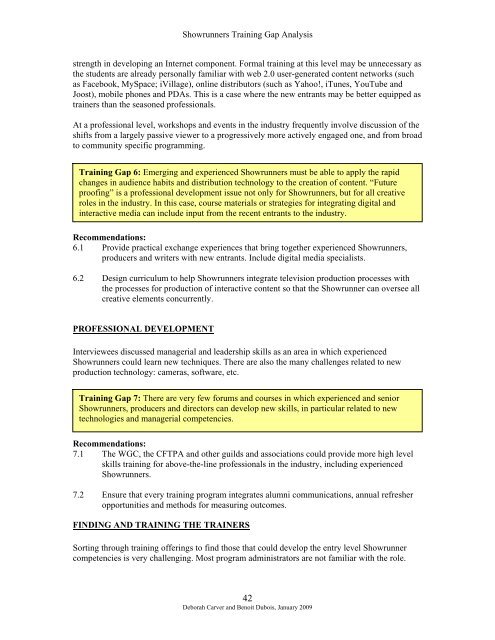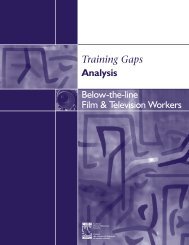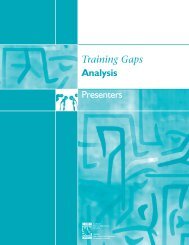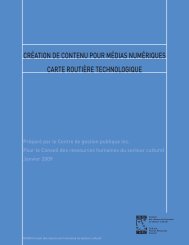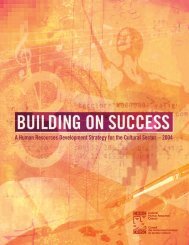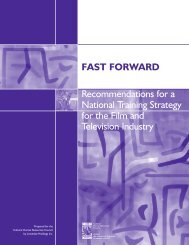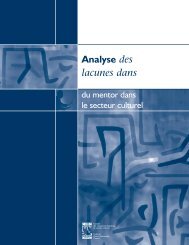Showrunners - Training Gaps Analysis - Cultural Human Resources ...
Showrunners - Training Gaps Analysis - Cultural Human Resources ...
Showrunners - Training Gaps Analysis - Cultural Human Resources ...
Create successful ePaper yourself
Turn your PDF publications into a flip-book with our unique Google optimized e-Paper software.
<strong>Showrunners</strong> <strong>Training</strong> Gap <strong>Analysis</strong><br />
strength in developing an Internet component. Formal training at this level may be unnecessary as<br />
the students are already personally familiar with web 2.0 user-generated content networks (such<br />
as Facebook, MySpace; iVillage), online distributors (such as Yahoo!, iTunes, YouTube and<br />
Joost), mobile phones and PDAs. This is a case where the new entrants may be better equipped as<br />
trainers than the seasoned professionals.<br />
At a professional level, workshops and events in the industry frequently involve discussion of the<br />
shifts from a largely passive viewer to a progressively more actively engaged one, and from broad<br />
to community specific programming.<br />
<strong>Training</strong> Gap 6: Emerging and experienced <strong>Showrunners</strong> must be able to apply the rapid<br />
changes in audience habits and distribution technology to the creation of content. “Future<br />
proofing” is a professional development issue not only for <strong>Showrunners</strong>, but for all creative<br />
roles in the industry. In this case, course materials or strategies for integrating digital and<br />
interactive media can include input from the recent entrants to the industry.<br />
Recommendations:<br />
6.1 Provide practical exchange experiences that bring together experienced <strong>Showrunners</strong>,<br />
producers and writers with new entrants. Include digital media specialists.<br />
6.2 Design curriculum to help <strong>Showrunners</strong> integrate television production processes with<br />
the processes for production of interactive content so that the Showrunner can oversee all<br />
creative elements concurrently.<br />
PROFESSIONAL DEVELOPMENT<br />
Interviewees discussed managerial and leadership skills as an area in which experienced<br />
<strong>Showrunners</strong> could learn new techniques. There are also the many challenges related to new<br />
production technology: cameras, software, etc.<br />
<strong>Training</strong> Gap 7: There are very few forums and courses in which experienced and senior<br />
<strong>Showrunners</strong>, producers and directors can develop new skills, in particular related to new<br />
technologies and managerial competencies.<br />
Recommendations:<br />
7.1 The WGC, the CFTPA and other guilds and associations could provide more high level<br />
skills training for above-the-line professionals in the industry, including experienced<br />
<strong>Showrunners</strong>.<br />
7.2 Ensure that every training program integrates alumni communications, annual refresher<br />
opportunities and methods for measuring outcomes.<br />
FINDING AND TRAINING THE TRAINERS<br />
Sorting through training offerings to find those that could develop the entry level Showrunner<br />
competencies is very challenging. Most program administrators are not familiar with the role.<br />
42<br />
Deborah Carver and Benoit Dubois, January 2009


